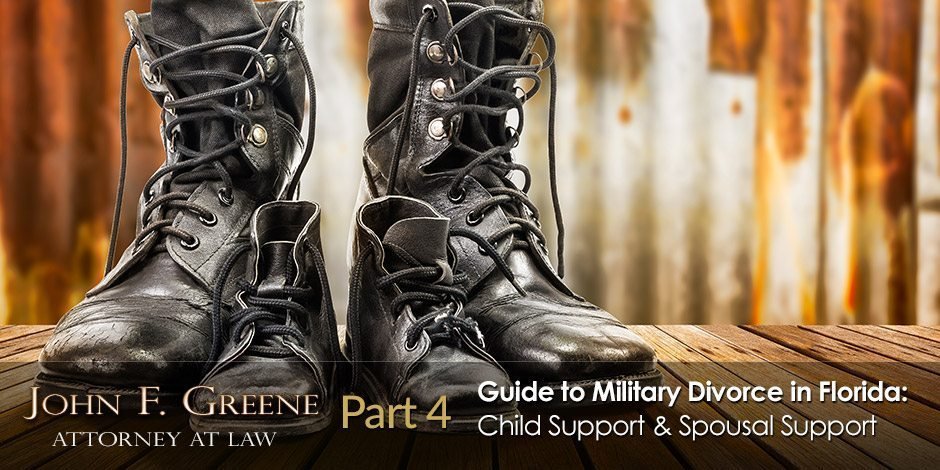
In many military divorces, child support and alimony (also known as spousal support) are two of the most contentious areas where couples find it difficult to agree. You need a Florida divorce attorney who understands child support and spousal support laws to protect your interests and the interests of your children.
Child Support Considerations in Military Divorce
While federal law governs some aspects of military divorces, child support calculations are determined by state law. As such, military couples who choose Florida as their divorce jurisdiction will let Florida law govern the child support process.
Under Florida law, child support may not exceed 60% of the servicemember’s pay and allowances. Beyond this guideline, Florida’s child support guidelines and schedules can be used to fairly determine the child support a military spouse will receive.
Florida law states that children under the age of 18 are minors, and these children must be financially supported until they reach adulthood at the age of 18.
Florida’s child support guidelines will be used, which consider:
- Parental Income
- The Child’s Healthcare and Child Care Costs
- The Child’s Standard Needs As Outlined by Florida’s Standard Needs Table
In addition to monetary payments, Florida also prioritizes the child’s ability to see both parents. Should a parent wish to relocate more than 50 miles from their permanent address once they receive primary custody, the parent must either receive court permission or the permission of the other parent.
When a servicemember receives relocation orders, that does not mean the Florida child relocation laws no longer apply. The parent must still seek the other parent’s approval or take the matter to a court hearing. Exceptions can be made when a parent is deployed, however.
Florida statutes forbid courts from modifying the parent custody plans or timesharing agreements while a parent is deployed. However, temporary changes can be made if it can be proven that a temporary change is in the best interest of the child. Additionally, if a servicemember will be deployed for a period in excess of 90 days, a family member may be designated as a caretaker of the child. The following rules apply to this designation:
The following rules apply to this designation:
- The designation must be made in writing
- The other parent must be notified of the designation 10 days prior to deploying
- The designation of caretaking is limited to a stepparent, grandparent or relative by marriage
Florida Spousal Support
Florida spousal support in a military divorce follows the same 60% limitation outlined for child support. Spousal support and alimony may not exceed 60% of the servicemember’s pay and allowances.
The Uniformed Services Former Spouses’ Protection Act governs spousal support for military divorces, including:
- Property Division
- Spousal Support for Giving Up a Career to Follow a Spouse’s PCS Orders
- Health Benefits
- Military Retirements
- And More
Disclaimer: While the information cited in this article is accurate based on current Florida law, the Florida legislature has recently passed a controversial child support and alimony overhaul bill that could change the current laws in the near future.
John F. Greene is a Destin divorce attorney who proudly represents service members in the Northwest Florida area. He fights to protect the rights of his clients so they receive fair compensation for marital contributions while protecting marital rights and parental rights.
In the next installment of our “Guide to Military Divorce in Florida,” we explore custody considerations for former and active military members. Contact John F. Greene or call 850-424-6833 to learn more about how he can help you with your case.
John’s Destin office also serves the cities of Niceville, Fort Walton Beach, Santa Rosa Beach and the Panama City area.









